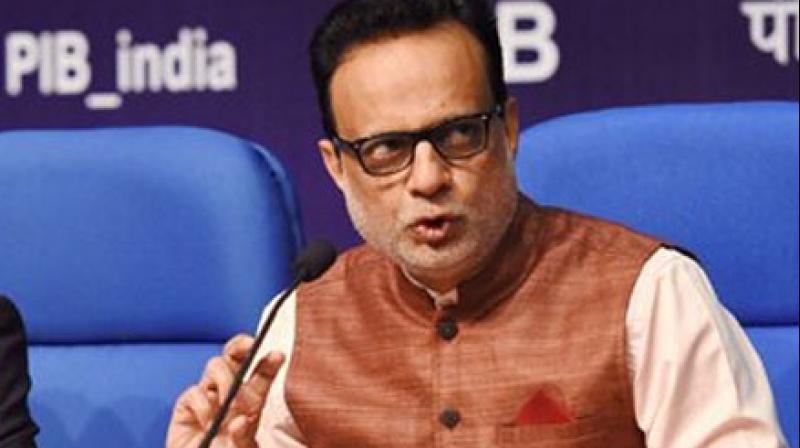Seven myths and realities about GST: Hasmukh Adhia clarifies

New Delhi: Revenue secretary Hasmukh Adhia on Sunday cleared apprehensions of consumers over the complexities of the Goods and Services Tax (GST), which is likely to benefit honest taxpayers.
Asserting that people should not fall for any rumour, Adhia in a series of tweets cleared the myths about GST and said the process around the implementation and execution will be transparent.
Below are seven myths and realities surrounding GST:
Myth 1: I need to generate all invoices on computer/ internet only
Reality 1: invoices can be generated manually also
Myth 2: I need internet all the time to do business under GST
Reality 2: Internet would be needed only while filing monthly return of GST
Myth 3: I have provisional ID but waiting for final ID to do business
Reality 3: Provisional ID will be your final GSTIN number. Start business
Myth 4: My item of trade was earlier exempt so I will immediately need new registration before starting business now
Reality 4: You can continue doing business and get registered within 30 days
Myth 5: There are three returns per month to be filed
Reality 5: There is only one return with three parts, out of which first part filed by dealer and two other parts auto populated by computer
Myth 6: Even small dealers will have to file invoice wise details in the return
Reality 6: Those in retail business (B2C) need to file only summary of total sales
Myth 7: New GST rates are higher compared to earlier VAT
Reality 7: It appears higher because excise duty and other taxes which were invisible earlier are now subsumed in GST and so visible now
Earlier, Adhia urged the people to not believe in any misinformation.
“Nothing to worry on GST implementation, don’t need big IT infrastructure. Even B2B don’t need big software. We will give free software,” he said.
Elucidating the process of the filing returns, Adhia further said that the people will only have to file return one in three months.
The GST, which rolled out on June 30 midnight is said to bring the Indian economy under a single tax bracket. Under GST, six slabs of taxation have been proposed by the council, ranging from 0 per cent to 43 per cent. Initially, it is being said that essential commodities and luxury goods will be taxed separately.

